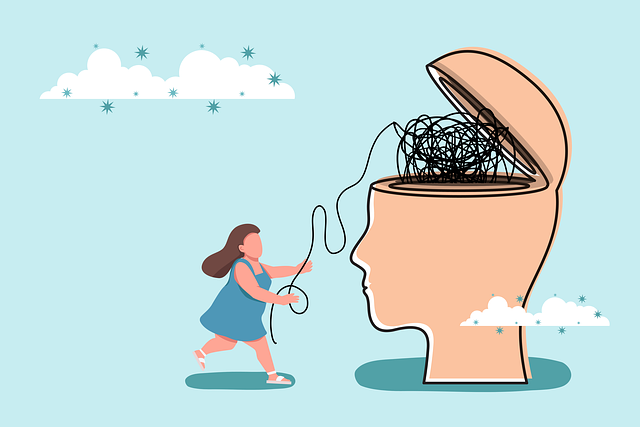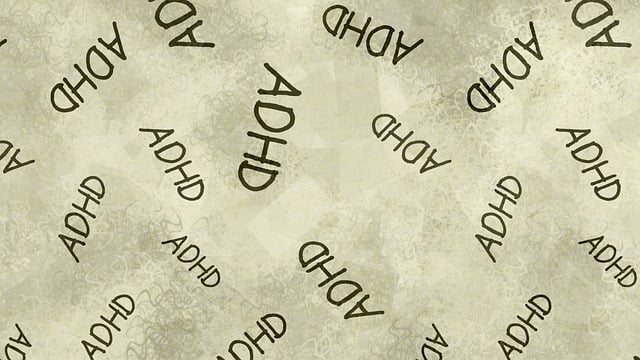Stress in children, driven by academic pressure, peer dynamics, routine changes, and home challenges, can manifest as behavioral issues, irritability, and physical symptoms. Aurora Children Therapy offers specialized programs like Social Skills Training, Emotional Intelligence development, and Mental Wellness Coaching to equip kids with coping strategies and emotional awareness. Their holistic approach, integrating play-based interventions, art therapy, music, and storytelling, creates safe spaces for emotional processing and healthy coping mechanism development. By teaching emotional regulation skills, Aurora Children Therapy enhances mental health awareness and resilience in young individuals. Incorporating mindfulness, empathy exercises, self-care practices, and supportive home environments inspired by these techniques are vital for students' well-being in today's demanding world.
Stress management techniques are essential tools for educators to empower children, especially with the growing emphasis on mental health awareness. This article explores effective strategies to help young minds cope with stress, featuring insights from Aurora Children Therapy. We delve into identifying common stressors and signs in children, offering practical tips for teachers, and providing guidance for parents and caregivers to create supportive environments. Discover how Aurora Children Therapy approaches stress management, making it a valuable resource for those seeking to nurture resilient, calm kids.
- Understanding Stress in Children: Common Causes and Signs
- The Role of Aurora Children Therapy in Stress Management
- Practical Techniques for Teachers to Teach Stress Relief
- Creating a Supportive Environment: Tips for Parents and Caregivers
Understanding Stress in Children: Common Causes and Signs

Stress in children is a growing concern, with many factors contributing to their overall mental wellness. At Aurora Children Therapy, we recognize that understanding and addressing these issues early is key to fostering healthy development. Common causes of stress in kids include academic pressure, peer interactions, changes in routines, or even challenges at home. These stressors can manifest through various signs, such as changes in behavior, irritability, difficulty concentrating, and physical symptoms like headaches or stomachaches.
Social Skills Training, Emotional Intelligence development, and Mental Wellness Coaching Programs are effective tools to help children navigate these challenges. By teaching them coping strategies, emotional awareness, and healthy ways to express themselves, we empower young individuals to manage stress effectively. These programs aim to strengthen their ability to handle demanding situations, promoting overall resilience and a positive sense of self.
The Role of Aurora Children Therapy in Stress Management

Aurora Children Therapy offers a unique and specialized approach to stress management, focusing on the emotional well-being of young individuals. Through creative and play-based interventions, this therapeutic method aims to help children navigate and express their emotions effectively. By integrating various techniques such as art therapy, music, and storytelling, Aurora Children Therapy creates a safe space for kids to process stressful experiences and develop healthy coping mechanisms.
This holistic approach not only addresses the symptoms of stress but also fosters mental health awareness by teaching children valuable emotional regulation skills. By mastering these techniques, young people can better manage their reactions to challenging situations, promoting overall resilience and well-being.
Practical Techniques for Teachers to Teach Stress Relief

Teaching stress management techniques to students is a valuable skill that can have a profound impact on their overall well-being, especially in today’s fast-paced and demanding world. Teachers play a crucial role in equipping young minds with tools to navigate stress and cultivate resilience. At Aurora Children Therapy, we believe that incorporating practical strategies into the classroom can create a soothing environment, fostering both academic and emotional growth.
One effective approach is to introduce Compassion Cultivation Practices (CCP). Encouraging students to practice mindfulness and empathy can significantly reduce stress levels. Simple exercises like guided meditations or sharing positive experiences can enhance self-awareness and promote a sense of calm. Additionally, promoting Self-Care Practices is essential. Teachers can educate students about the importance of regular exercise, healthy eating, and sufficient sleep as foundational pillars for managing stress. Encouraging positive thinking through affirmations or gratitude journals can also empower students to view challenges as opportunities for growth.
Creating a Supportive Environment: Tips for Parents and Caregivers

Creating a supportive environment is an essential aspect of teaching stress management techniques, especially for parents and caregivers looking to positively impact their children’s mental health awareness. At Aurora Children Therapy, we emphasize the power of a nurturing atmosphere where young minds can learn and practice coping strategies. One effective tip is to designate quiet spaces in the home, offering a sense of sanctuary away from daily stressors. This could be a cozy corner with soft lighting, where children can retreat to when feeling overwhelmed, fostering self-soothing skills.
Additionally, encouraging open communication and empathy building strategies is vital. Parents can model healthy expressions of emotion and actively listen to their children’s experiences, validating their feelings. By integrating these practices into daily routines, individuals can develop a strong sense of self-care, which is crucial for maintaining better mental health. This approach not only equips children with valuable coping mechanisms but also strengthens the bond between parents and caregivers.
Stress management is a vital skill for children to develop, and with the right guidance, teachers and parents can empower young minds to navigate stressful situations effectively. By incorporating practical techniques from Aurora Children Therapy, educators and caregivers can foster a supportive environment that promotes emotional well-being. Understanding the common causes and signs of stress in children is the first step towards providing much-needed support. Through simple yet powerful methods, like mindfulness exercises and positive reinforcement, adults can help children develop resilience and healthy coping mechanisms, ensuring they thrive in both academic and personal pursuits.














